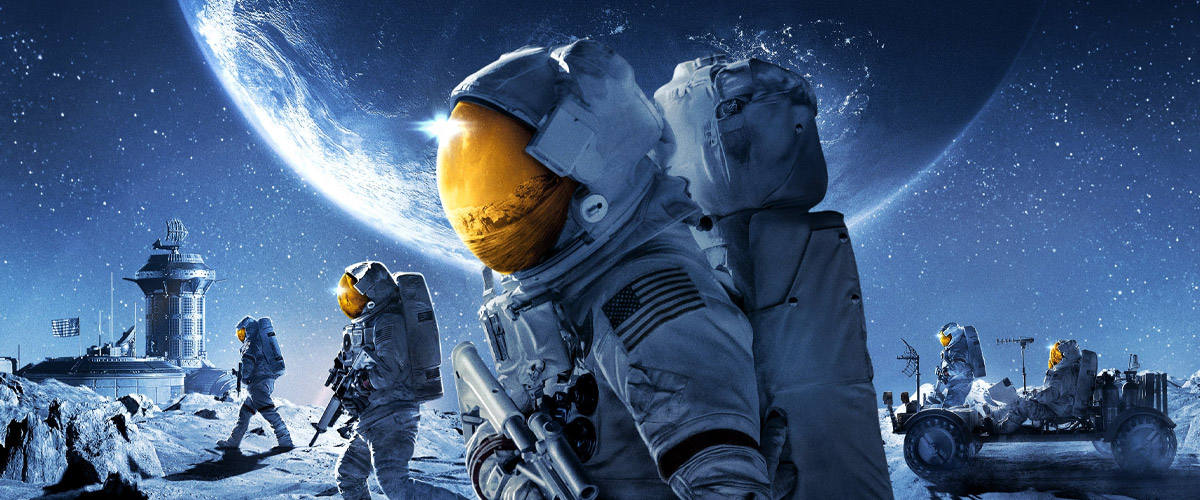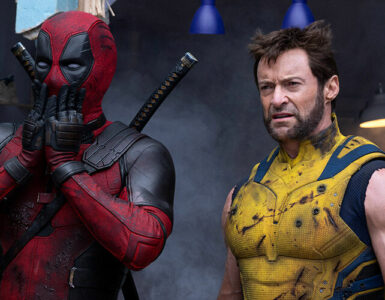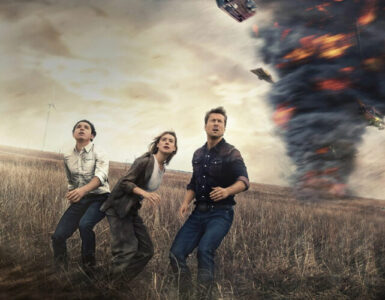The race to space has always been central to the advancement of all mankind. Our history of shooting for the stars is nothing short of surprises, discoveries and unfortunate misadventures that have left painful marks over the last 60 years, but it has also created a connection between man and space that will perpetually see mankind strive to go further into the unknown.
This interconnection has often spun familiar tales of exploration through the cinematic experience with films like Interstellar or Apollo 13. Regardless of their authenticity or basis on reality, they have their unique way of storytelling that has taken the genre to the far reaches of the cinematic industry.
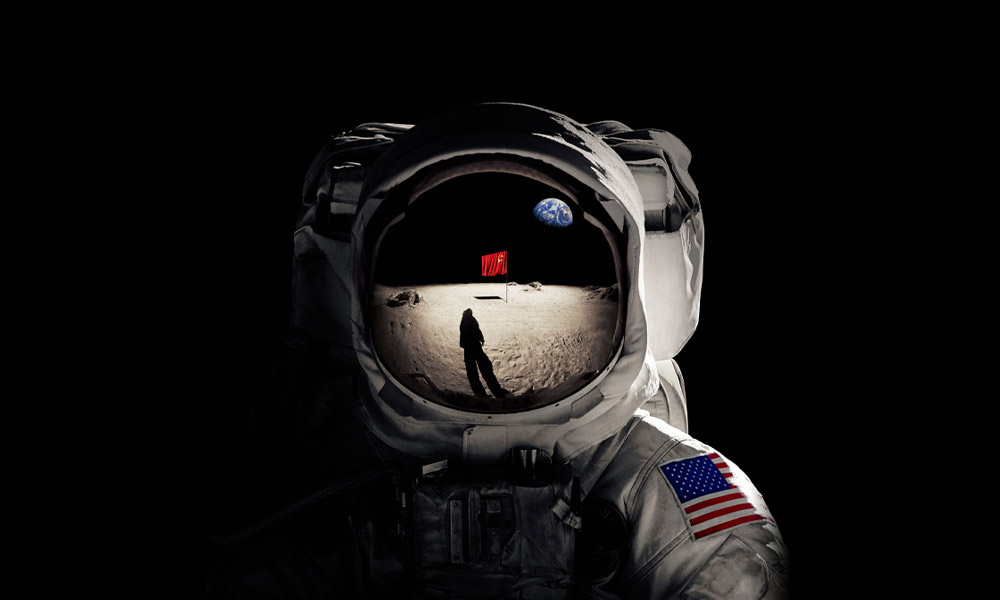
While we’ve seen plenty of movies and documentaries about space, we’ve never had many TV drama series that has tried to take on this lofty genre but also challenges itself to ask the question, What if? Which brings us to Apple TV+’s For All Mankind.
For starters, anything can happen in this two-season series (so far), because it is essentially built on an alternate premise of the space race between the USA and USSR – what if it was the Russians who landed on the moon before the Americans did?
The series, while based on real occurrences and follows the timeline of 20th century competition closely, rewrites history and explores the possibilities of what could’ve happened if the space race never came to an end. We know what happened in reality – the Russians basically gave up chasing the final frontier, and the Americans spent some time returning to the moon, before looking elsewhere to spend their money (Space Force notwithstanding).
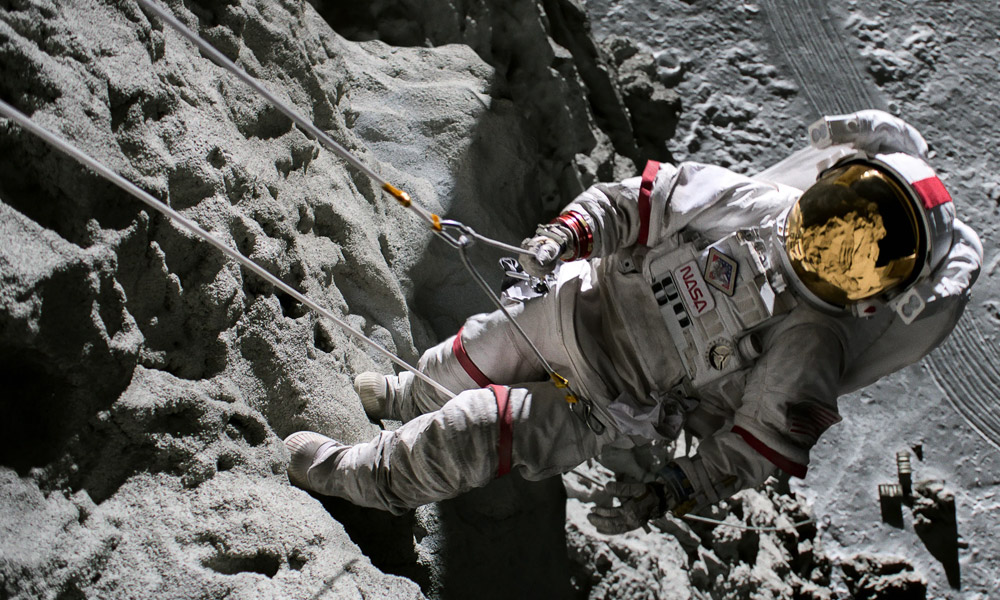
When we first get into the debut season, the slow ride establishes the foundation of the new premise, that if the Russians got to the moon, how would the US respond? Well, the Americans would feel the bitter loss, and would rededicate their attempt. But this time, the Russians would want to stay ahead, so they too would continue to domminate.
While the show does make use of actual historical characters, including Deke Slayton (Chris Bauer), Neil Armstrong (Jeff Brandson) and Wernher von Braun (Colm Feore), it also adds new ones. Joel Kinnaman (Robocop, Suicide Squad) stars as Edward Baldwin, Michael Dorman (The Invisible Man) as Gordo Stevens, Sarah Jones (Alcatraz) as Tracy Stevens and Shantel VanSanten (The Flash, The Boys) as Karen Baldwin essentially play the leads, though the show has a great ensemble cast of characters who essentially make up this alternate US space program.
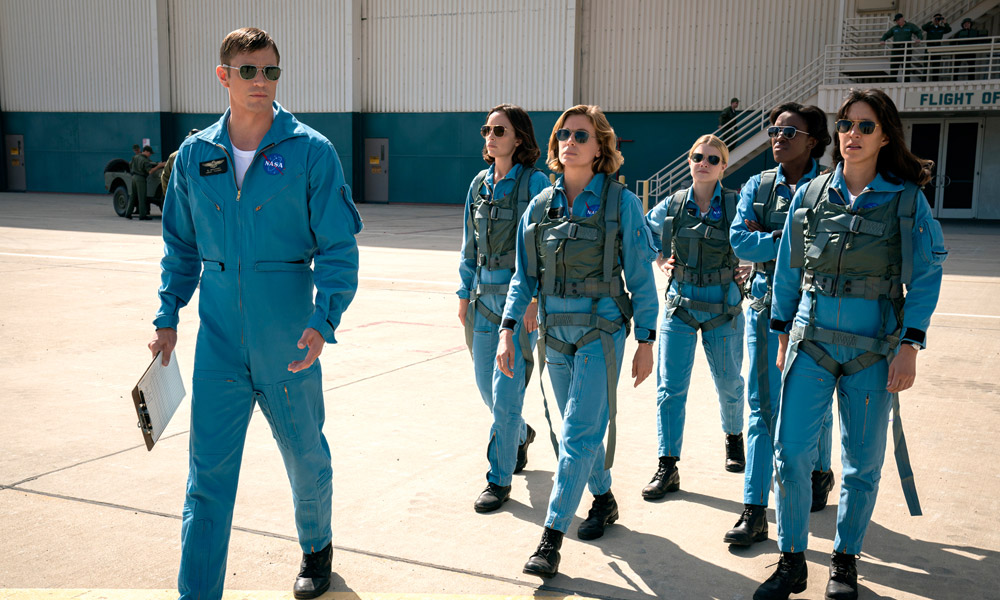
Each episode runs over an hour long and feels almost like a drag to start but every time you do, you find yourself wanting more and inadvertently asking questions by the end. Did that just happen? Is Baldwin going to make it? Are they going to die?
This keeps happening until you realize you’re at the finale of the entire season, and emotions wash over you as you finally get a hold of the entire series’ culmination – a roller coaster ride filled with so many emotions that it managed to put us at the edge of our seats, and unknowingly forced a few tears of heartache and gratification.
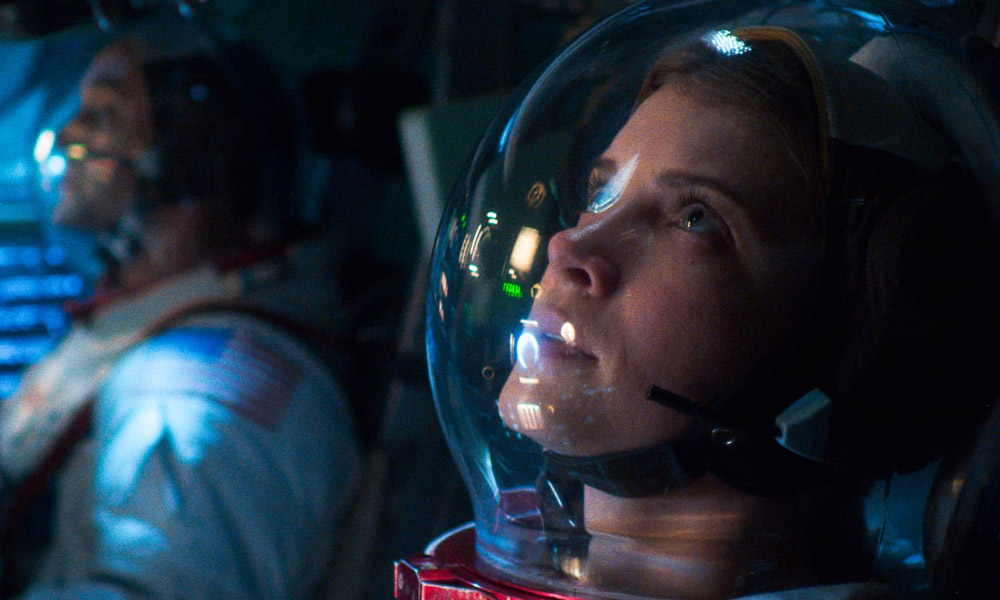
While a great show of human determination and grit, it also shows how some events could have unfolded differently. For example, history recognises Valentina Vladimirovna Tereshkova as the first woman in space, but what if after landing on the moon, the Russians decid to send a female cosmonaut to the moon? Well, this drives the US to add women to its space program right from the start, to show that the Americans can do what the Russians did, and better.
And by the 1970s, the US already has a moon base up and running. If this sounds somewhat fantastical, maybe it’s because the show is from the mind of Ronald D. Moore, one-time writer for Star Trek: The Next Generation and showrunner of the Battlestar Galactica reboot, but don’t let his sci-fi credentials fool you – For All Mankind is grounded in many ways.
He’s joined by producer Matt Wolpert and Ben Nedivi, who worked on Fargo, so it’s no surprise that across both seasons, the stories and their cinematic visuals exhibits an air of authenticity, with each episode skillfully made thanks to Moore’s expertise in the genre.
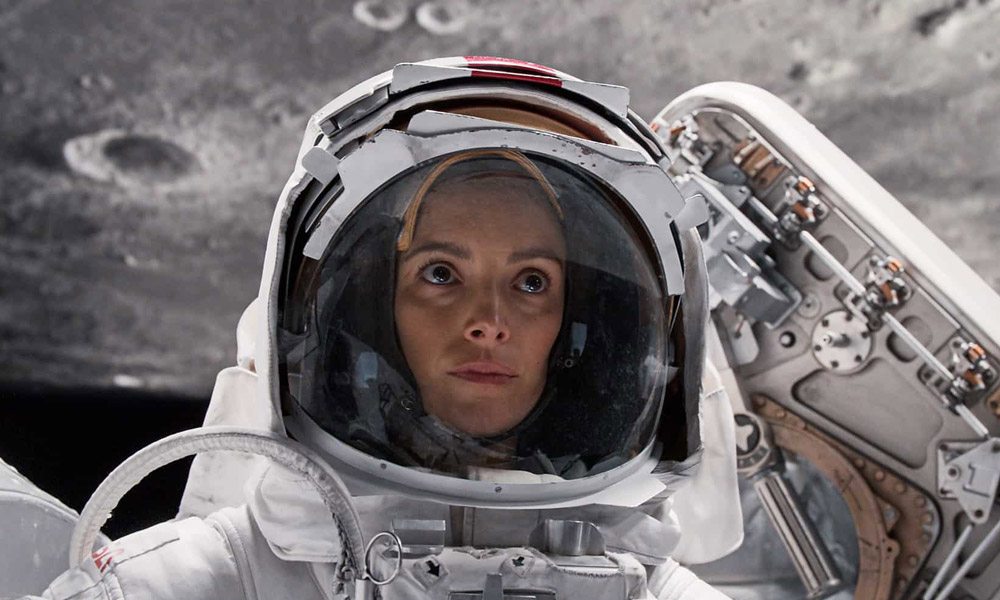
Besides the monumental competition of who has superior spaceflight capabilities and the spectacle of rocket take-offs and moon-landings, the series offers a unique perspective that puts the audience in a gripping overview of its people rather than the machines.
For All Mankind offers a deeper meaning beyond space travel, by adding a personal touch into understanding not just the achievements of these exceptional space travel feats, but also into those of the men and women behind them. It is ultimately compelling because it successfully unravels the stories behind these people, often shrouded by the stardom of space exploration.
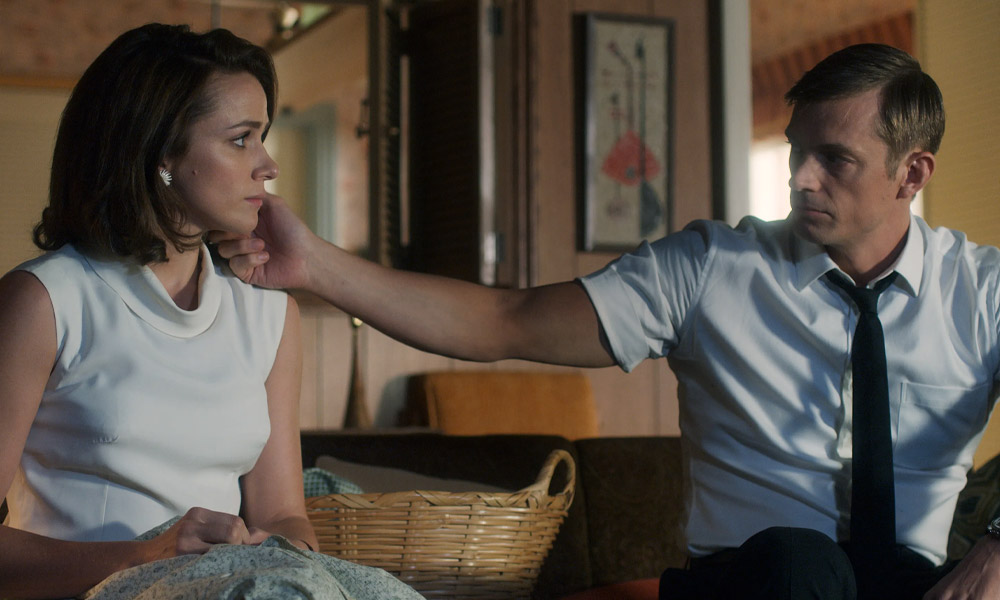
The film explores the underlying parallels between the astronauts and those around them and a good part of the series fixates around the moon-landings of the Apollo flights between Baldwin and his comrades, while the other half explores the hidden world of these astronauts seen behind the eyes of their families and friends. You’re not just watching an astronaut fly into space, you’re also watching a friend, husband and father preparing to leave his family 384,400km behind, for months or for some, for good.
The show is also not afraid to kill off some of the main characters, and before you know it, some of the characters you’ve followed can die for no reason, because that’s what life is. It is also unafraid to tackle hot topics, such as being gay and recognising the need to remain in the closet, as well as its take on mental health. Dorman’s portrayal of Gordo Stevens is essential viewing, as it shows a hero, a father, philanderer, national hero and a damaged man, with an extended narrative across several instrumental episodes that highlight the unsettling candour behind the mental health of the astronauts.
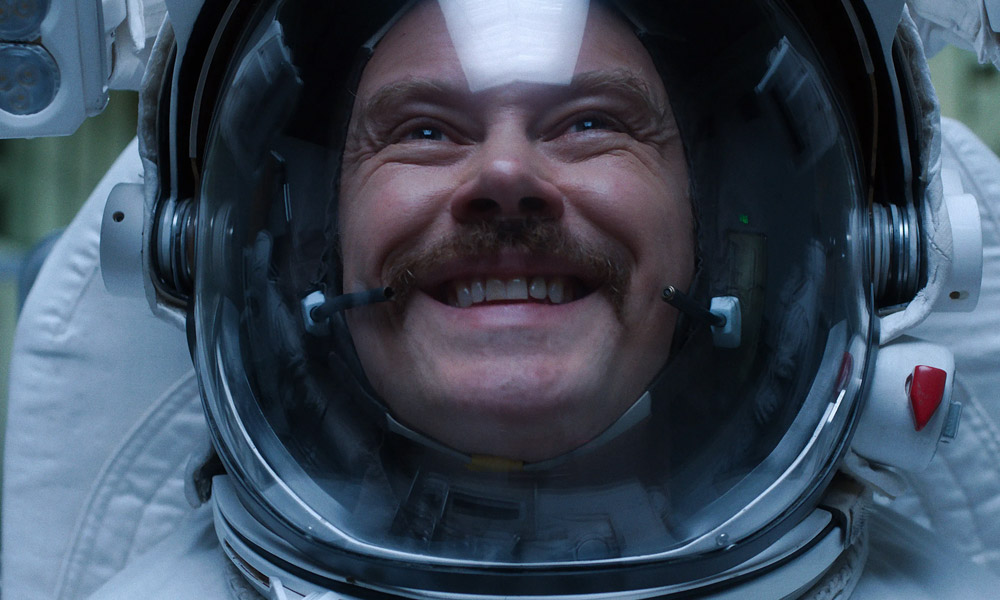
Each of these characters brings out their own flavour to the show, and shapes the entire universe of astronauts, engineers and their families into something so gripping that the overarching narrative manages to weave an emotional anthology of loss, anger, love and joy. And that’s just Season 1.
By the time you get to season 2, which shows a new decade, things change and characters grow and evolve, even if their season 1 narrative starts off slowly. Take for example teenager Aleida Rosales (Olivia Trujillo) who has an expanded narrative in season 1, but the first season offers no pay-off for the character until season 2, in which she is played by a new, older actress, Coral Peña. In fact, audiences will struggle to find an impact or connection with her throughout the entire first season, though it sets up her relationship with Wrenn Schmidt’s Margo Madison, an engineer at NASA, and it’s only in season 2 that their story unfolds.
Season two also delves deeper into the American psyche, of needing to be stronger, better and more powerful, though it does resort to some narrative traps, that the Russians must be evil, and ignores other countries who are also chasing the galactic dream, by not even mentioning China and India as contenders for space wars.
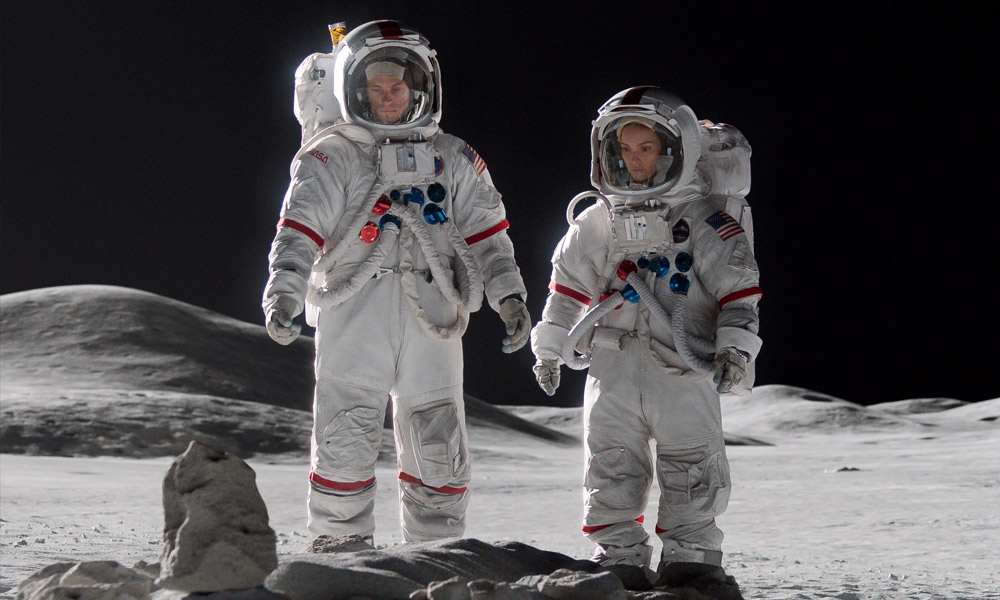
Frankly speaking, we’re not overselling the series when we say For All Mankind captures every underlying parallel of a fictional space-racing universe. Even when politics and family are already a heavy theme for a TV series, don’t be surprised when it also explores many other unfettered issues, such as feminism and LGBTQ.
What’s coherent about the show is that it doesn’t mash up these plot points into a mess, but it manages to explore each concept tastefully, without forcing too much onto the audience.
Viewers who want to give the space race a shot might find a lot more to it than what the series is selling. The almost obscure Apple TV+ series offers an enthralling adventure of its spectacular cast, and their ordinary fight as man and woman, in an extraordinary setting of astronauts.
The first two seasons of For All Mankind offer an unpredictable drama series that culminates in a bittersweet conclusion like our own campaign into the unknown, which has brought forth discovery, tales of heroes and heroines and the many sacrifices that they have given, for the sake of all mankind. The second season opens up even more possibilities, some of which are marred by tragedies, while others show us the expected trajectory of the space race.
Needless to say, we cannot wait for Season 3, as we move beyond the moon, and on to the Red Planet.
For All Mankind is currently available on Apple TV.
GEEK REVIEW SCORE
Summary
In an alternate universe where the race to space never ended, For All Mankind tells emotional tales of astronauts and those they leave behind in a sweeping compelling narrative thanks to its gripping themes, visual spectacle and impressive cast.
Overall
8.5/10-
Story - 9/10
9/10
-
Direction - 9/10
9/10
-
Characterisation - 8/10
8/10
-
Geek Satisfaction - 8/10
8/10

